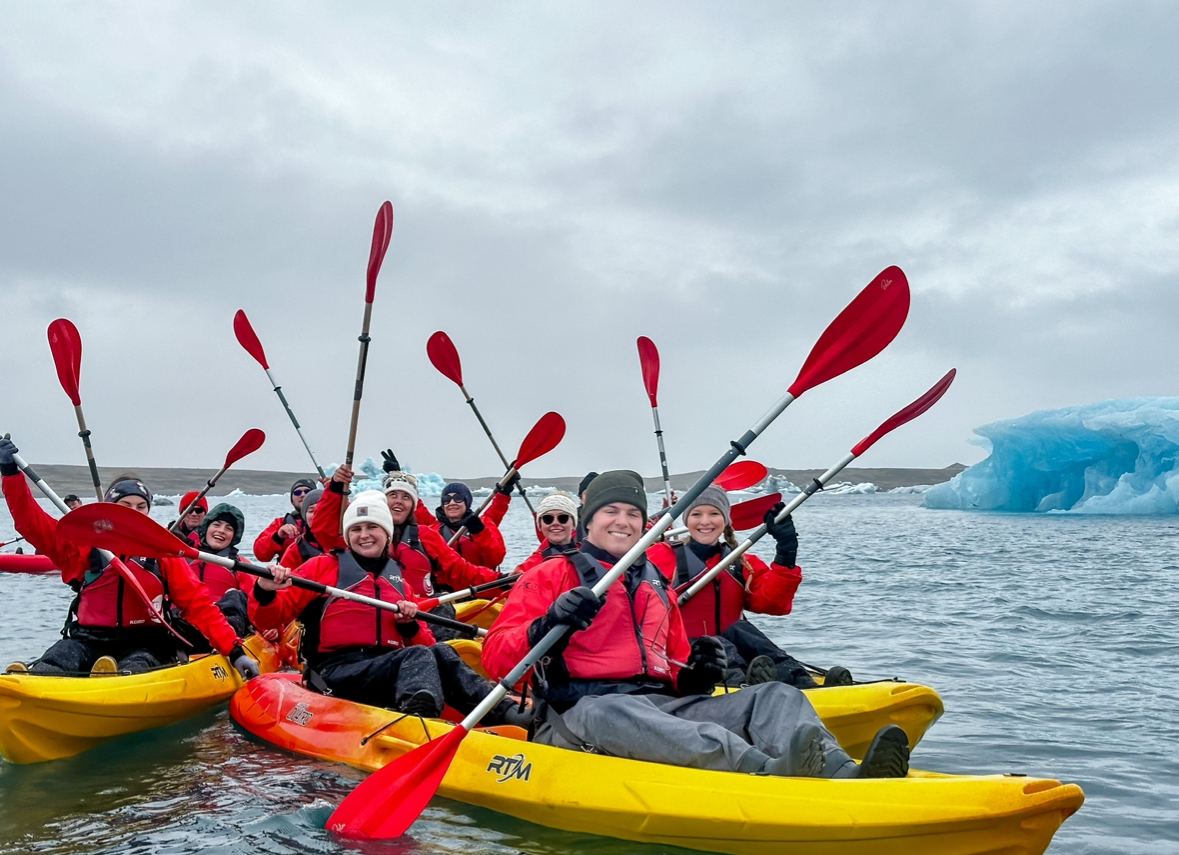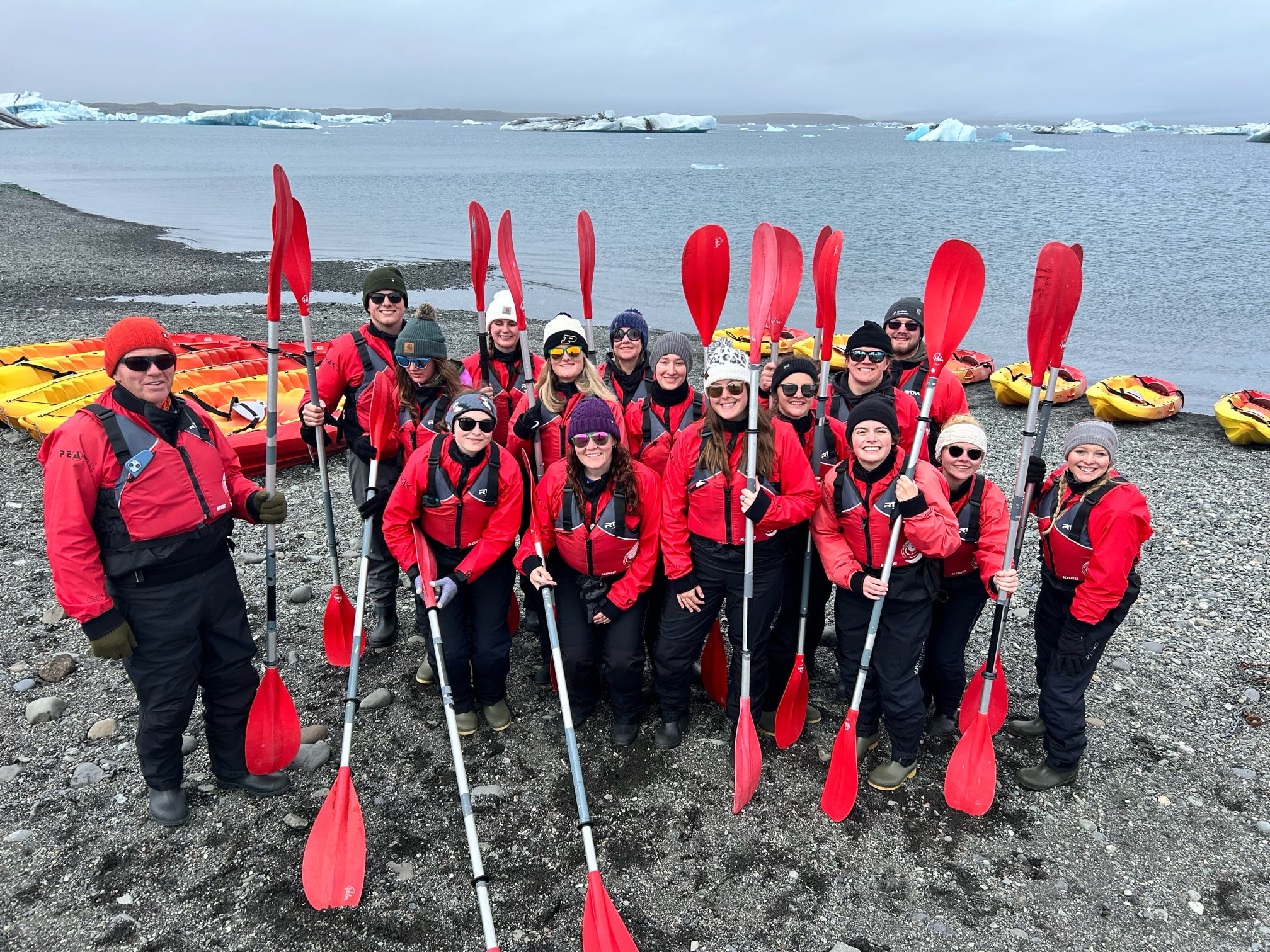
Exploring Iceland’s Agriculture and Natural Resources
A few Agricultural Economics students spent two weeks in early May touring Iceland as part of the “Agricultural and Natural Resources in Iceland” Study Abroad program. The trip included stops in Reykjavik, Akureyri, Myvatn, East Fjords and Egilstadir.
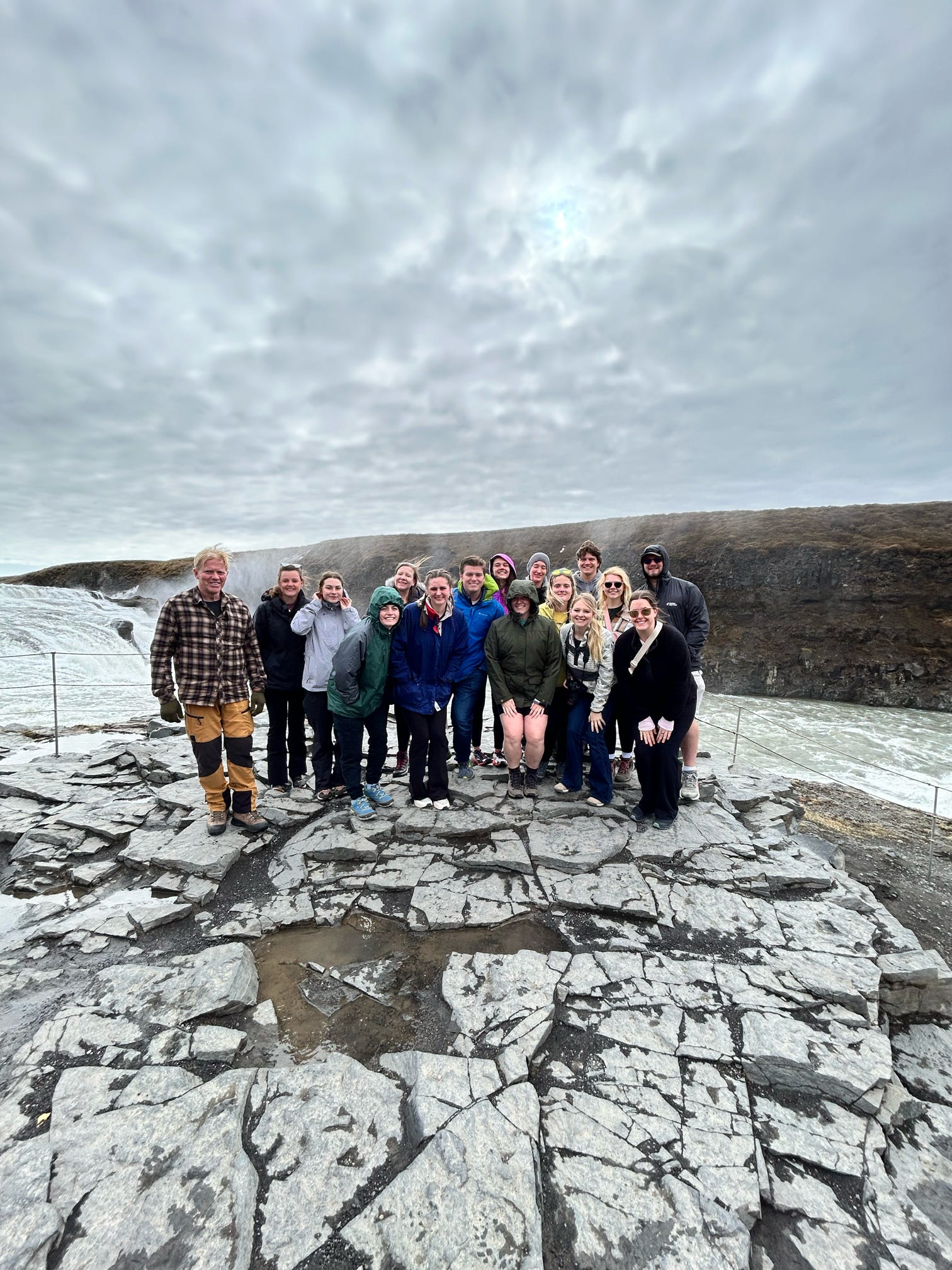
Cole Kirkpatrick (Senior; Farm Management; Veedersburg, IN) explained, “Going to Iceland was an amazing experience. This trip taught me a lot about myself as a person, as well as reinforcing some of the beliefs I had about myself. This trip was very beneficial for me to experience because I was able to learn about a culture that I had little to no prior knowledge of, and getting to experience it firsthand was very fascinating. One thing I learned about Iceland that I thought was really cool was about their agricultural production and how much of their food is imported rather than grown on the island. The crops that they grow usually go towards their livestock, and the country instead imports most of the other goods. Overall, this experience was second to none as I have learned so much and met so many new people along the way and wouldn’t change it for anything.”
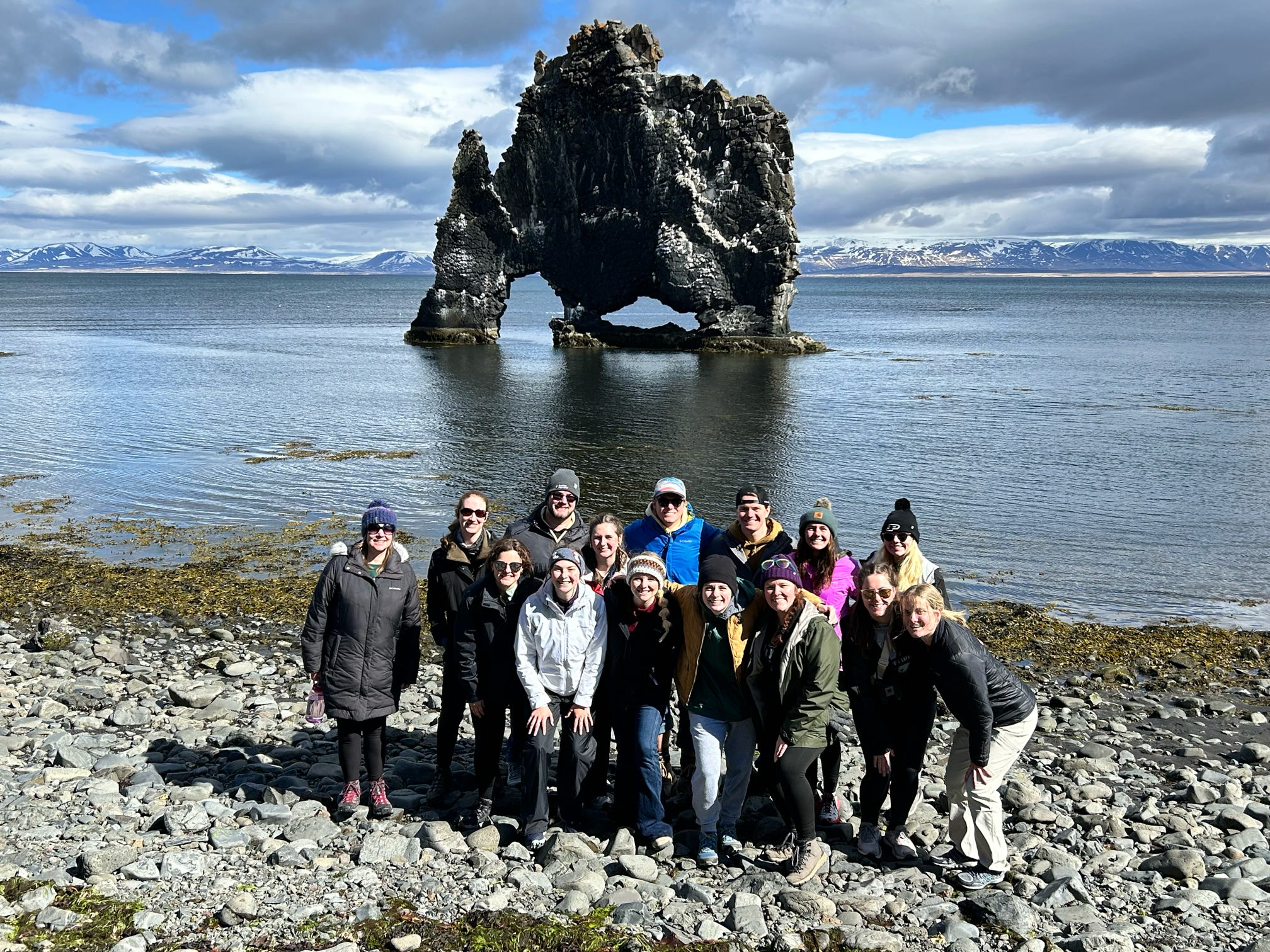
Shelby Whitaker (Senior; Sales and Marketing; Valparaiso, IN) added, “The Agriculture in Iceland Study Abroad was the trip of a lifetime! I am so happy for the opportunity to have attended and enjoyed immersing myself in the language, Icelandic culture, agricultural industry and gorgeous scenery. It’s extremely difficult to choose just one favorite activity...so a few of my favorite highlights included the abundance of hiking trails to reach huge waterfalls, especially Gljufrabuinn, Skógafoss, and Seljalandsfoss; kayaking on the glacier lagoon; seeing puffins on the black beach; and touching the glacier Myrdalsjokull.”
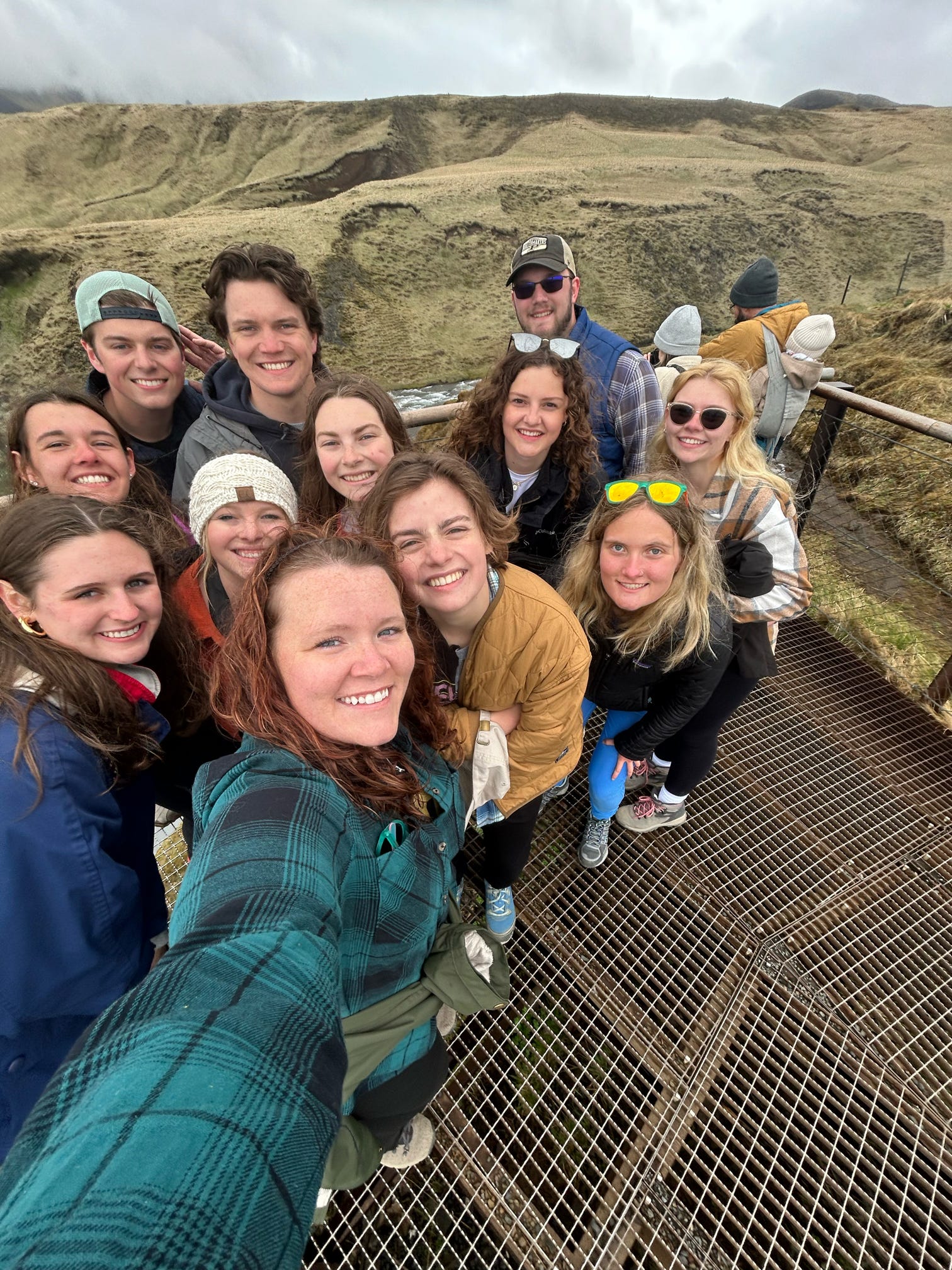
Jade Larrison (Junior; Agribusiness; Grand Haven, MI) shared, “One thing I learned was that Iceland is great at reusing its energy and protecting its natural resources. During this study abroad, we visited many educational centers, such as the Lava Center, a geothermal power plant and the Agricultural University of Iceland. I learned that Iceland relies heavily on importing food and tourism, but they value their culture and customs. The glaciers, mountains and rocks are important to the Icelandic people, who strive to be stewards of the land by protecting the natural environment.”
